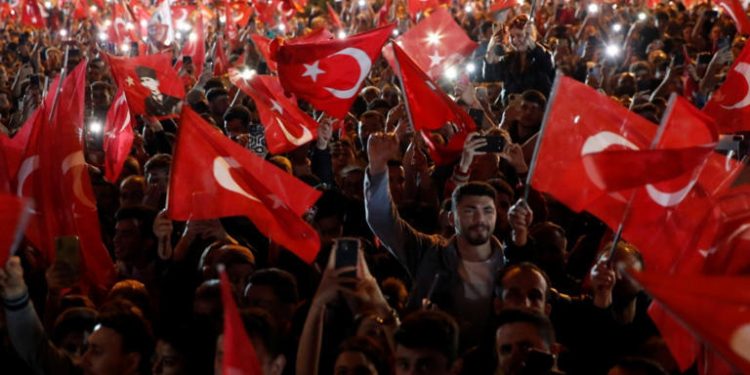In an unexpected turn of events Turkey sends a signal to autocratic rulers of the world that they should not be complacent of their victories and get prepared for reversal of electoral fortunes any time. Turkey’s main Opposition party has got a sudden shot in the arm following a surprise set of results that has enhanced the prospects of democratic renewal in the country. Less than a year ago, Turkey’s main Opposition parties had a drubbing when the country’s authoritarian leader, Recep Tayyip Erdogan trounced them, winning a third term in presidential elections. This was followed by an equally resounding victory of his Justice and Development party (AKP) which emerged more powerful from a parliamentary poll. This happened when the country’s economy was in doldrums. As in the case of several other autocratic rulers, Erdogan became unassailable for his aggressive brand of politics and overwhelming media dominance.
The victories created such an illusion of invincibility that Erdogan and his party are now shell shocked by the unanticipated reverses in the local elections 31 March. The people seemed to have felt so liberated that there were wild celebrations into the early hours. In Istanbul, Turkey’s largest city, the incumbent mayor, Ekrem Imamoglu inflicted a crushing defeat on Erdogan’s candidate. Imamoglu’s Republican People’s Party (CHP) also had a clean sweep in other major cities, registering a landslide victory in the capital, Ankara. What appears unbelievable is that the CHP managed to win the elections in the conservative towns and villages in the heartland in Anatolia and near the Black Sea, regarded as bastions of Erdogan. The Islamic far right New Welfare Party (YRP) also forged ahead in these areas at the AKP’s expense, adding to the woes of the President.
Despite the jubilation in the Opposition camp, it would be too early to conclude the results represent a turning point in Turkey’s politics. This is because Erdogan’s grip on institutional networks built during the past two decades is formidable indeed. At the same time, the electoral reverses for the President and his party give rise to hope to secular, liberal voters. Resentment among the people is running high with inflation at nearly 70 per cent coupled with a big rise in interest rates. Obviously, the austerity measures Erdogan adopted since he was re-elected have brought cheers to Western markets, but alienated the core AKP support base. Rubbing salt into injuries, Imamoglu has played his cards so well during the past few months that he has been able to attract more conservative voters to the CHP. This is in sharp contrast to the lacklustre performance of the Opposition last May.
The most significant fallout of the electoral outcome of 31 March could be that Erdogan may refrain from seeking further constitutional change to allow him to run for yet another term as President. For over a decade, Erdogan has been positioning himself as more and more authoritarian with a relentless erosion of democratic checks and balances. Things came to such a pass that in 2017 constitutional reforms led to the role of prime minister being abolished. The European Commission has recently noted sharp deterioration in the rule of law and human rights. The governing coalition led by the AKP does not have the numbers to change the constitution on its own, but a spectacular victory in the local elections could have paved the way for it. Fortunately, for the votaries of democracy that was not to be.
The setback to Erdogan is likely to have ramifications beyond its borders too. If his popularity is on the wane, as indicated by the 31 March results, strong messages go out to the authoritarian brand of politics sweeping many countries around the world. This is what Imamoglu hinted at in his victory speech.







































